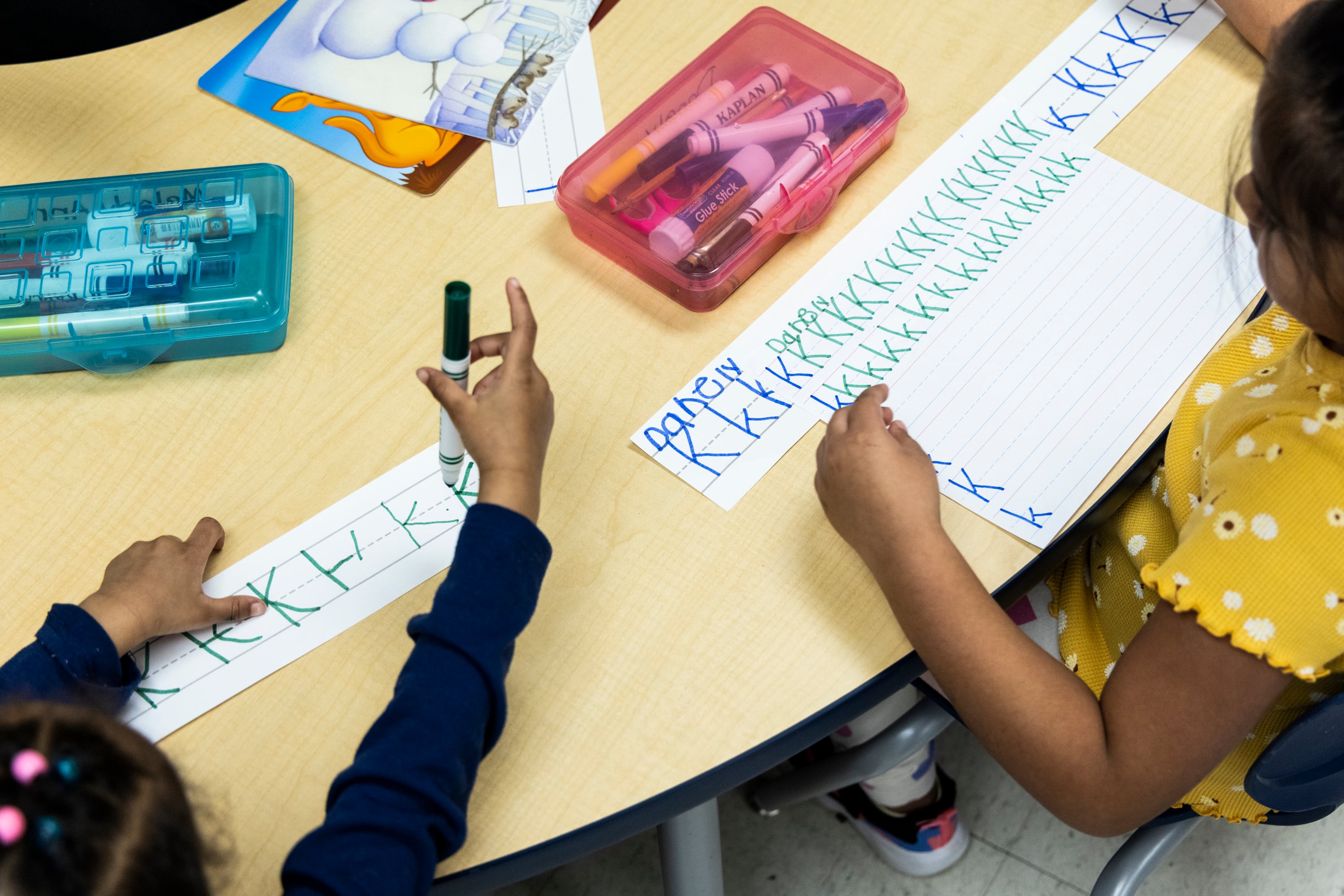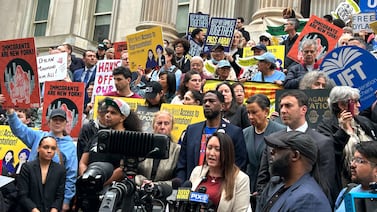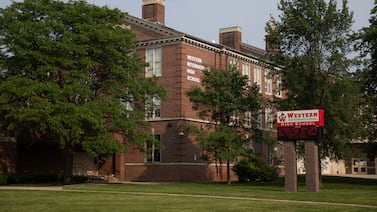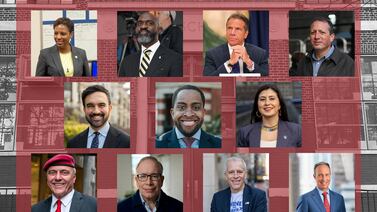Sign up for Chalkbeat New York’s free daily newsletter to get essential news about NYC’s public schools delivered to your inbox.
Leaders of New York’s City Council said Wednesday they will push Mayor Eric Adams to add roughly $800 million in education funding to the city’s final budget.
Of that $800 million, roughly $280 million would go towards early childhood education, around $180 million would support CUNY, and the remainder would go to K-12 schools, according to budget documents.
The council’s total request for additional education-related expenses is about $1.6 billion, once capital projects are included.
Increasing investment in the city’s strained child care system is front and center in the council’s annual budget response. Legislators called on Adams to restore nearly $200 million for the city’s free 3-K and Pre-K programs excluded from the mayor’s January preliminary budget proposal. Council members said they will also push for an additional $84 million to expand access to child care vouchers.
“This year, we’re once again fighting for the resources that are critical to neighborhoods across the city,” said Council Speaker Adrienne Adams, a Queens Democrat who is challenging Adams for the party’s nomination for mayor. “Early childhood education remains a top priority for this council because we know it is critical for children’s development and working families.”
The budget response offers the first full look at the council’s priorities as budget negotiations with City Hall kick off. Mayor Adams is expected to release his executive budget by May 1, and the council and mayor are supposed to agree on an adopted budget by the end of June.
This year, the city is not facing the same acute financial pressures as in recent years when billions in federal COVID relief ended up and the city incurred billions in new costs from the influx of migrants, the council noted. The council also projects billions more in revenues than the Adams administration.
But there are still big financial risks — including the possibility that the state budget could reduce funding for the city in several key areas. The Trump administration’s ongoing efforts to slash federal spending also complicate the city’s fiscal outlook, council members said.
Child care has emerged as a major sticking point in budget negotiations. Mayor Adams has consistently pushed to slash spending, arguing that the city needs a more sustainable plan that cuts down on unfilled seats. But council members and advocates counter that child care access should expand as the city confronts an ongoing affordability crisis.
At issue in this year’s budget is nearly $197 million for 3-K and Pre-K that the city funded this year, but which Adams did not include in his preliminary budget. That includes $112 million for 3-K, $55 million for special education preschool seats, $25 million for extended day programs, and $5 million for outreach.
Many of the education initiatives the council is now fighting to save were previously supported by federal COVID aid that ran dry last year. The council successfully pushed the city to replace the funding for many of those programs — but in some cases only for a year.
Beyond restoring that $197 million, the council is also pushing for an additional $84 million to expand access to child care vouchers, which families can use to subsidize the cost of programs for infants and toddlers or afterschool care.
The city’s main voucher program, the Childcare Assistance Program, reaches nearly 80,000 families and is funded almost entirely by the state. The program now faces a yawning budget gap that could force the city to kick thousands of families out of the program each month unless the state increases funding by nearly a billion dollars in this budget, city officials have warned.
The council’s budget response asks the city to chip in an additional $24 million a year to raise the income eligibility for the voucher program from around $108,000 for a family of four to $128,000.
The council also wants to expand a new city program called Promise NYC, which provides vouchers to undocumented families not eligible for the state-funded program to 3,500 children. That’s a $60 million annual investment.
Rebecca Bailin, the executive director of New Yorkers United for Child Care, called the council’s proposal “a step in the right direction on the path to universal child care for all that will keep families in New York.”
Outside of early childhood, the council is pushing to restore funding to a number of K-12 programs previously funded by federal relief, and renewed in last year’s budget for only a year.
That includes $5 million for a new school mental health program Mayor Adams recently touted at a press conference, $14 million for community schools that bring in outside nonprofits to provide additional services to kids and families, and $41 million for arts education.
The council also calls for $10 million for “affinity” high schools that work with outside networks, and $4 million for tutoring. The council proposes another $65 million for school nurses, $154 million to replace expiring federal funding for custodial services, and $10 million to help recruit more school cafeteria workers.
In addition to the roughly $800 million more the council wants for education programs, legislators are also seeking more than $800 million in education-related capital expenses. That includes an additional $150 million for cafeteria enhancements and $450 million more to make school buildings accessible to students with physical handicaps.
Michael Elsen-Rooney is a reporter for Chalkbeat New York, covering NYC public schools. Contact Michael at melsen-rooney@chalkbeat.org






